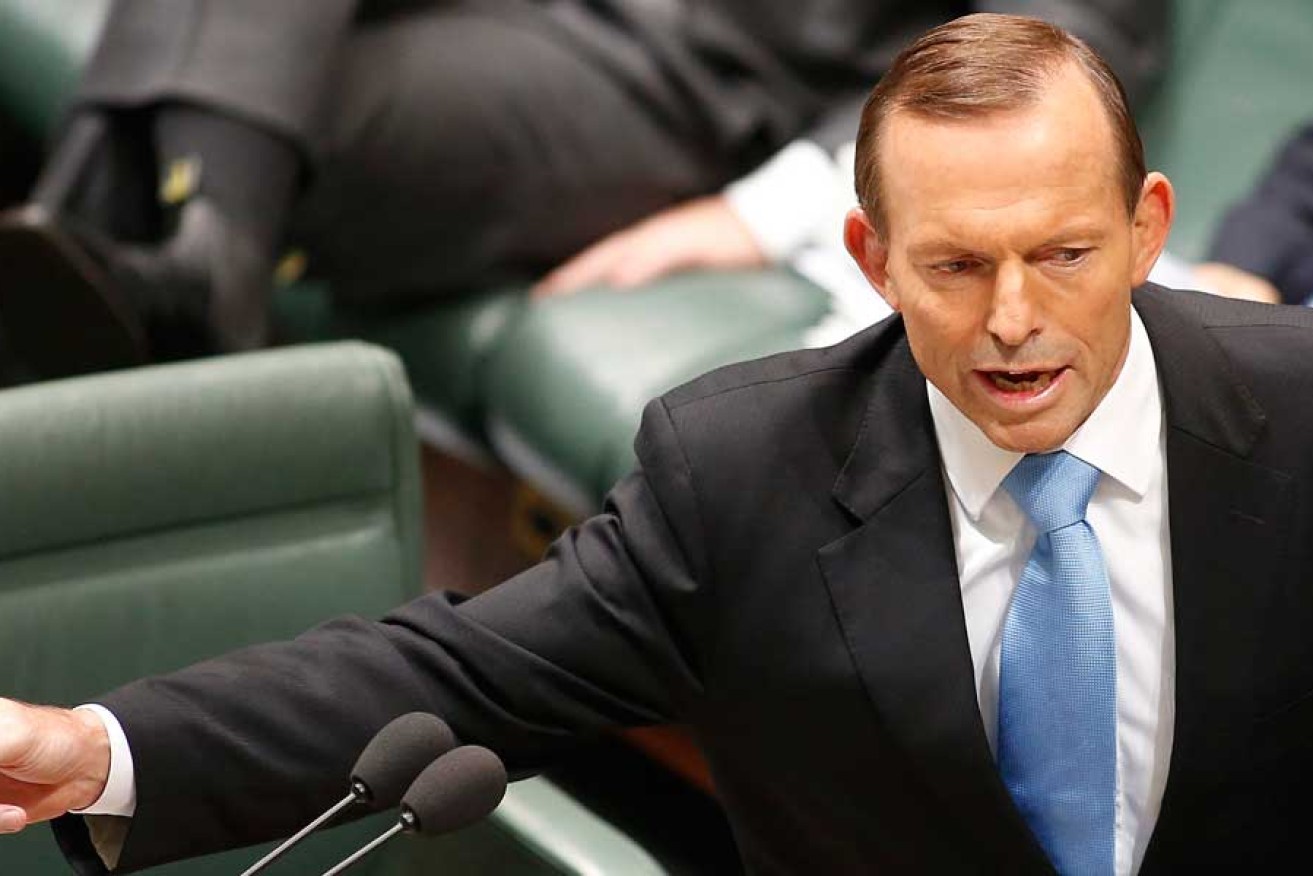Right royal ruckus for Sir Tony

Prime Minister Tony Abbott in question time yesterday.
Arise, Sir Tony.
Amid the merry-making over the prime minister’s decision to bring back knights and dames was a more serious issue about priorities.
Governments face political danger when disconnects emerge between how they appear to be spending their time and what the public wants them to do.
If you were looking at Canberra from afar early in the week you would have thought that reinstating honours and allowing bigots to blog, tweet, taunt and insult without legal consequences were upper-most on the government’s agenda.
The debate also reminded voters of one of Abbott’s stereotypes – a staunch monarchist out of touch with modern values.
The debates were somewhat surprising because the coalition doesn’t have a lot of political capital to work with.
Abbott’s week began with Newspoll marking the government down, giving Labor a 52-48 two-party lead.
Labor also, against the odds, managed to hold onto power in South Australia albeit with the support of an independent and only 47 per cent of the statewide vote.
A recent in-depth opinion survey by JWS Research examined the idea of a disconnect between the government and community opinion.
Immediately after the election, voters registered steady or increased confidence in government on their highest priority policy areas of health, the economy and education.
But six months later confidence has declined, most sharply in the area of economic health and the direction of business and industry.
According to the survey, 66 per cent of Australians rate the economy and finances in their top five most important issues, yet just 21 per cent rate the performance of governments as good or very good in this area.
Eight in 10 voters cited health as a top five issue, but only 17 per cent were happy with government performance.
Opposition Leader Bill Shorten says the issue of government priorities will come into sharper focus as parliament rises for a six-week break before the May 13 budget.
“Every budget is a window onto a government’s soul,” he told the National Press Club this week, adding it was a sign and signal of its priorities.
He followed up with a series of questions in parliament to the prime minister about the coalition’s “twisted priorities”, citing the $5.5 billion paid parental leave scheme, the abolition of the income support bonus and the potential cuts to trade training and research.
Abbott responded by citing lifting the burden of the carbon and mining taxes from families and business, and cleaning up the union movement as his key priorities.
“This is a government which is focused on doing the right thing by the families of Australia,” he told parliament.
He urged Labor to fulfil its pre-election promise to terminate the carbon tax and not renege on support for the billions of dollars in budget cuts it had lined up to legislate before losing office.
Treasurer Joe Hockey began laying the political groundwork for the government’s first budget – a strategy to convince voters that Labor is to blame for the state of the books.
“It’s your deficit,” he yelled across the chamber this week during a debate on whose budget figures were more rubbery.
The strategy has the potential to backfire as voters wonder when the government plans to take responsibility for its own action, such as adding $14 billion in extra spending since the election.
The announcement of plans to sell Medibank Private and the first major review of national competition policy in more than two decades helped to refocus the coalition at the end of the week.
The Medibank Private decision not only reinforces the government’s pro-business message but also gives state governments some political cover for asset sales – something they have been unable to do in recent years due to public antipathy towards privatisation.
Abbott and Hockey are keen for the states to release much-needed capital tucked away in their ports, rail and other assets to spend on new infrastructure.
While knights will have their day, the helmets voters are more interested to see are the hard-hats on construction sites – preferably schools, hospitals and congestion-cutting roads and rail lines.




